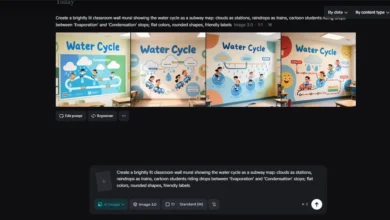
Many people have questions about what debts they leave behind when they die.
Will they just disappear, or will their families have to shove them?
The good news is that life insurance is an option that can act as a safety net and stop your loved ones from being saddled with unexpected financial obligations.
Learn the steps you should take to secure your family’s future by understanding how various debts process after death and how life insurance can help.
Read on to understand how life insurance can protect your loved ones from financial burden.
What Happens to Debt After Death?
When a person dies, their debts don’t just go away. They are typically addressed through their estate, which consists of all the money and property a person leaves behind. Estates use their assets to pay off debts before any inheritance is doled out to beneficiaries.
If the estate lacks sufficient funds to repay the debts, liability will depend on the nature of the debt and whether any other persons are legally obligated to it. That is why a financial protection plan, like life insurance, can prove to be a blessing.
Common Types of Debt and How They Are Handled
Different types of debt have different rules when it comes to repayment after death. Here’s how some of the most common debts are typically handled:
Mortgage Debt
For many people, a mortgage is the largest financial obligation. If a homeowner passes away, the responsibility for the mortgage falls on:
- A co-signer or co-borrower, if one exists.
- A spouse or family member, if they wish to keep the home and continue making payments.
- The estate may use assets to pay off the remaining balance.
If payments cease, the lender can put the property up for sale to make up the difference. With life insurance, the mortgage can be covered, and family members can stay at home without financial burden.
Credit Card Debt
Credit card balances are unsecured debt; they are not collateralized against anything. They are usually settled upon death using the assets in the estate. If there are not enough assets to pay off the balance, the credit card company often forgives the debt.
However, if a joint account holder exists, the other account holder becomes responsible for the balance remaining. Life insurance can also provide funds to pay off credit card debt, sparing loved ones the burden of handling unpaid credit card balances.
Car Loans
Auto loans are secured debt, which means they are connected to the vehicle. So if a borrower dies and no one assumes the debt. If there is a co-signer, this person will have to keep making payments. Life insurance can also cover an outstanding car loan, letting family members keep the car if they need it.
Student Loans
The treatment of student loan debt depends on whether the loan is private or government-backed.
- Government-issued student loans are often forgiven upon the borrower’s death.
- Private student loans may still need to be repaid, especially if a co-signer is involved.
A life insurance policy can provide coverage to settle any remaining student loan debt without burdening family members.
Medical Bills and Other Debts
Any unpaid medical bills, personal loans, and other debts are paid from the estate. In the event that there are not sufficient assets, the debts could remain unpaid. But in some cases a spouse, or a co-signer may still be on the hook. Life insurance can take care of these costs so family members can avoid a sudden financial burden.
How Life Insurance Can Protect Your Loved Ones
Life insurance is one of the most effective ways to prevent your debts from becoming a burden on your family. A well-structured policy can provide funds to:
- Pay off outstanding debts, including mortgages, credit cards, and loans.
- Cover final expenses, such as funeral and medical bills.
- Replace lost income to support dependents and maintain their standard of living.
Choosing the Right Life Insurance Policy
Different types of life insurance policies can help with debt protection:
| Type of Insurance | Best For |
| Term Life Insurance | Covering temporary debts (e.g., mortgage, car loan) |
| Whole Life Insurance | Long-term financial security and debt coverage |
| Guaranteed Issue Life Insurance | Covering final expenses and small debts |
The right policy depends on personal financial goals, debt obligations, and the level of protection needed for loved ones.
Conclusion
Debts do not always evaporate when someone dies, and in many cases, a surviving family member can be impacted. The plan includes how different debts are taken care of and how you plan for a life insurance policy so that your family members are not subjected to any financial obstacles.
When you get the right coverage, you can rest assured that your debts will be settled and your family’s finances will be safe.

















